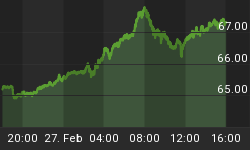Focus at today's European Central Bank (ECB) press conference was on the continued tremors rattling Greece. A couple of key points:
- The ECB refinancing collateral framework will introduce a gradual scale of "haircuts" starting 1/1/2011. We recently called for such a framework to provide an ECB mechanism to reward fiscal discipline. The framework continues to rely on ratings by rating agencies (our proposal called for haircuts based on a scoring system based on adherence to the stability and growth pact).
- ECB head Trichet clarified European Monetary Union rules that Greece shall not receive aid below market rates does not refer to Greece's market rates, but to the refinancing costs of those countries providing aid.
- There were many questions on what would trigger a rescue package. Trichet was very clear that it is up to Greece's judgment to ask for help. It's a question for political leaders, not for the ECB.
Many questions focused on the perceived confusion on why credit default swaps (CDS) for Greece are high and climbing; and why Greece's costs of borrowing continues to be much higher (with spreads widening) than that of other eurozone member countries.
Using a term that was used extensively during the press conference, to us, the situation is "crystal clear". It seems to us that many market participants are not aware that:
- Should aid be provided to Greece and the IMF be involved, loans granted by the IMF tend to be senior to outstanding government debt. It is absolutely justified by the market to demand a higher premium on outstanding debt given the prospect of IMF involvement.
- Further, while it is not known at this stage, IMF involvement typically includes a) austerity measures, b) currency revaluation and c) debt restructuring. Austerity measures have been announced and may or may not be expanded; a currency revaluation is not an option for Greece; but debt restructuring is. With IMF involvement, there's a high probability that existing debt may be restructured. Policy makers don't like to call debt restructuring a default, but it is a partial default that may trigger payment under CDS rules. As a result, it is perfectly appropriate for credit default swaps to rise.
Towards the end of the press conference, Trichet said the market is always right. We agree with Trichet - the pricing of Greek bonds and CDS is rational.
However, the market does need to learn that Greece comprises just over 2% of the eurozone GDP. As such, at some point, we believe, the market will need to get used to Greece's woes. There's life beyond Greece; as a result, we are positive on the long-term outlook of the euro.















